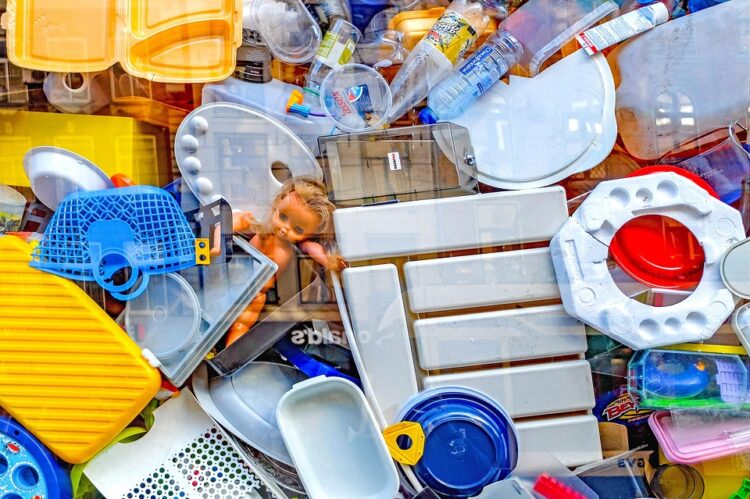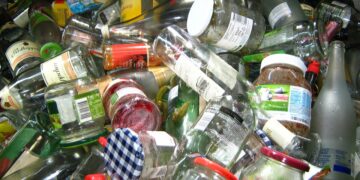[ad_1]
Revolutionizing Recycling: The Path to Sustainable Living
Recycling is a crucial component of sustainable living. It helps reduce waste, conserve natural resources, and minimize environmental impact. However, traditional recycling methods are often inefficient and ineffective. In order to truly revolutionize recycling and move towards a more sustainable future, we need to embrace innovative technologies and practices that can streamline the recycling process and make it more efficient.
The Importance of Recycling
Recycling is essential for preserving our planet and protecting the environment. By recycling materials such as paper, plastic, glass, and metal, we can reduce the amount of waste that ends up in landfills and incinerators. This not only helps to conserve valuable resources but also reduces greenhouse gas emissions and minimizes pollution.
Additionally, recycling helps to save energy. It takes far less energy to recycle materials than it does to produce them from raw materials. For example, recycling aluminum cans saves up to 95% of the energy required to produce new cans from raw materials. By recycling materials, we can significantly reduce our energy consumption and lower our carbon footprint.
The Challenges of Traditional Recycling
While recycling is essential for sustainable living, traditional recycling methods are often inefficient and costly. Sorting and processing recyclable materials can be time-consuming and labor-intensive, leading to high operating costs for recycling facilities. Additionally, contamination of recyclable materials can reduce their value and make them more difficult to recycle.
Furthermore, many communities lack access to convenient recycling programs, leading to low recycling rates and increased waste generation. In order to truly revolutionize recycling and move towards a more sustainable future, we need to address these challenges and implement innovative solutions that can make recycling more efficient and effective.
Revolutionizing Recycling with Innovative Technologies
One of the key ways to revolutionize recycling is through the use of innovative technologies. Advanced sorting systems, such as optical sorters and robotics, can help streamline the recycling process and improve the quality of recycled materials. These technologies can quickly and accurately sort different types of materials, reducing contamination and increasing the value of recyclables.
Another innovative technology that is revolutionizing recycling is chemical recycling. This process breaks down plastic waste into its basic chemical components, which can then be used to produce new plastic products. Chemical recycling offers a more sustainable alternative to traditional mechanical recycling methods and can help reduce the amount of plastic waste that ends up in landfills.
Creating a Circular Economy
In order to truly revolutionize recycling and move towards a more sustainable future, we need to embrace the concept of a circular economy. A circular economy is based on the principles of designing out waste and pollution, keeping products and materials in use, and regenerating natural systems. By closing the loop on the production and consumption of goods, we can create a more sustainable and efficient system that minimizes waste and conserves resources.
One way to create a circular economy is through extended producer responsibility (EPR) programs. These programs require manufacturers to take responsibility for the end-of-life management of their products, including recycling and disposal. By holding manufacturers accountable for the environmental impact of their products, we can incentivize them to design products that are more easily recyclable and less harmful to the environment.
Addressing Common Questions about Recycling
Many people have questions about recycling and how they can make a positive impact on the environment. Here are some common questions about recycling, along with answers to help you better understand the importance of recycling and how you can contribute to a more sustainable future:
What can I recycle?
You can recycle a wide range of materials, including paper, plastic, glass, metal, and electronics. Check with your local recycling program to see which materials are accepted in your area.
How can I recycle more effectively?
To recycle more effectively, make sure to clean and empty recyclable materials before placing them in the recycling bin. This helps to reduce contamination and ensure that the materials can be recycled properly.
Can I recycle plastic bags?
While plastic bags are recyclable, many recycling programs do not accept them because they can clog recycling equipment. Instead, consider reusing plastic bags or bringing them to a designated drop-off location for recycling.
What happens to recycled materials?
Recycled materials are processed and sorted at recycling facilities before being sent to manufacturers to be used in the production of new products. By recycling materials, we can conserve resources and reduce waste.
Conclusion
Revolutionizing recycling is essential for moving towards a more sustainable future. By embracing innovative technologies, creating a circular economy, and addressing common questions about recycling, we can make recycling more efficient and effective. Together, we can work towards a world where waste is minimized, resources are conserved, and the environment is protected for future generations.
Let’s all do our part to revolutionize recycling and create a more sustainable world for all.
[ad_2]












